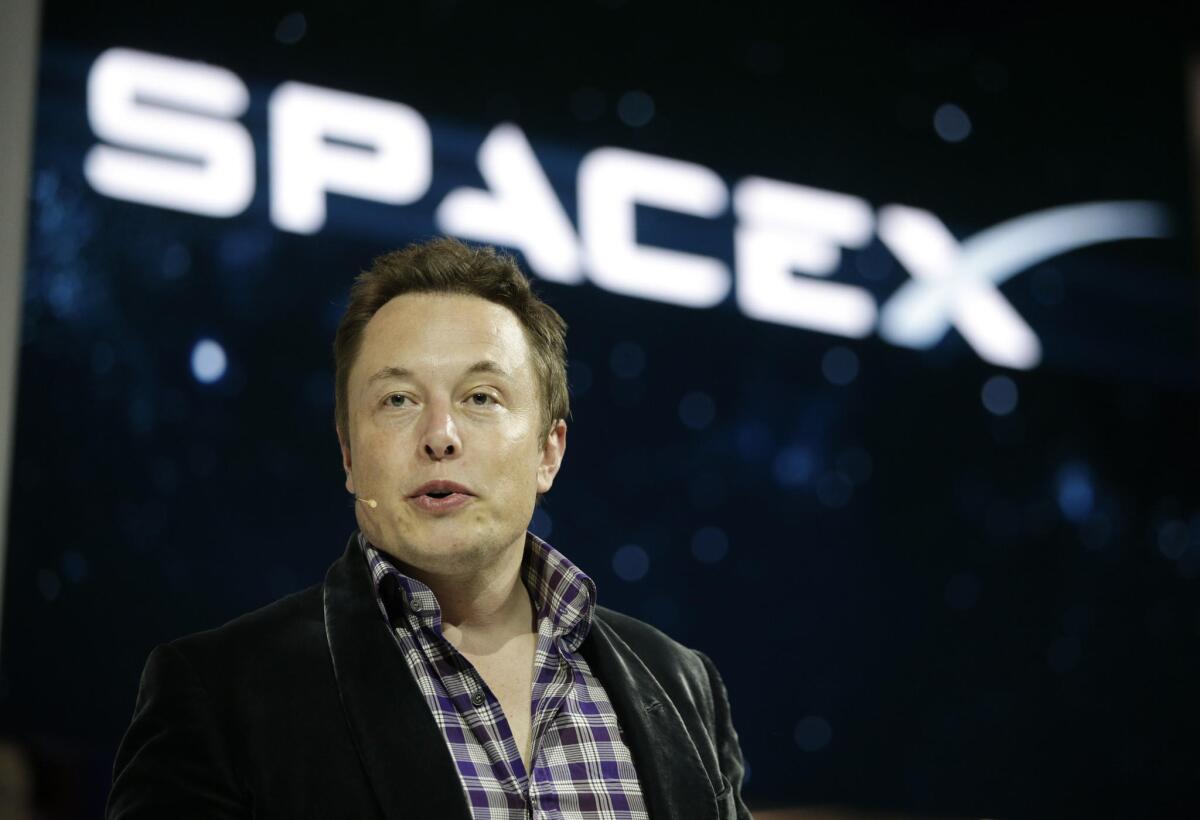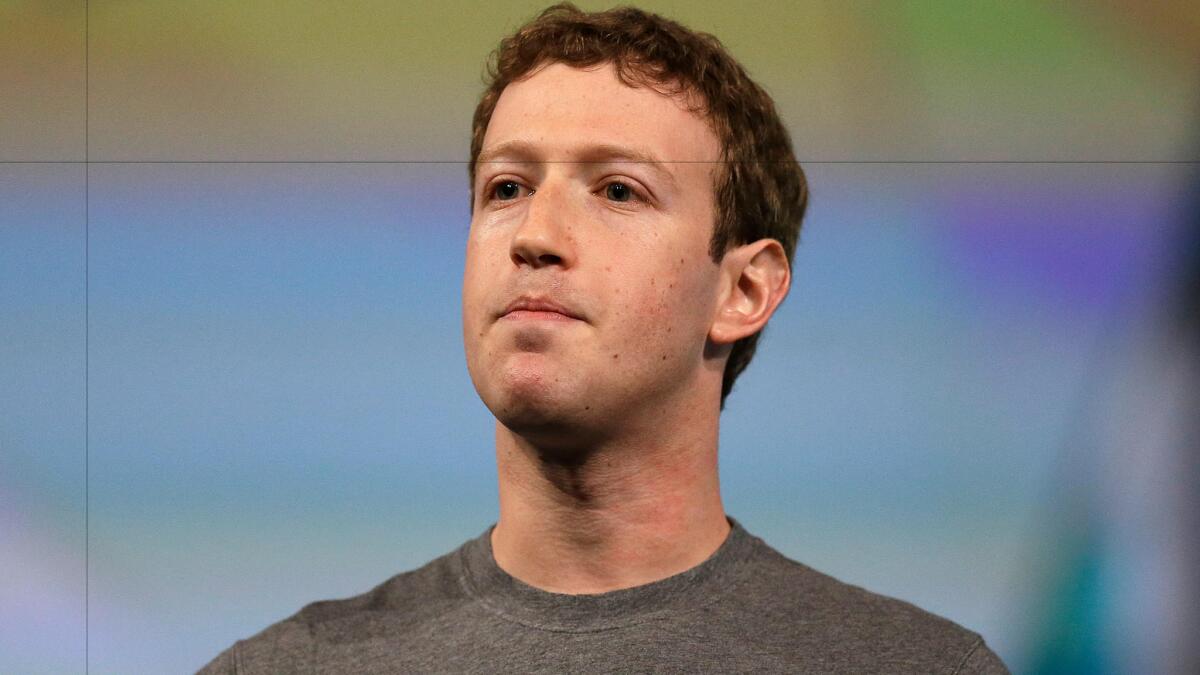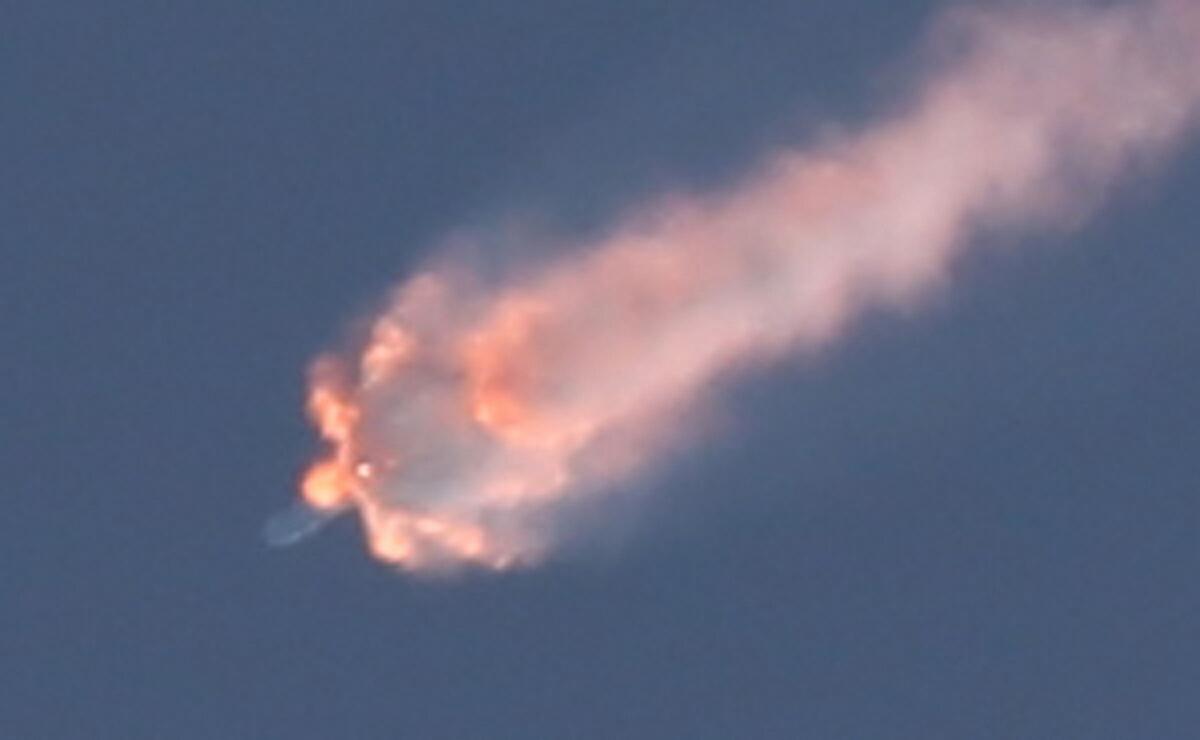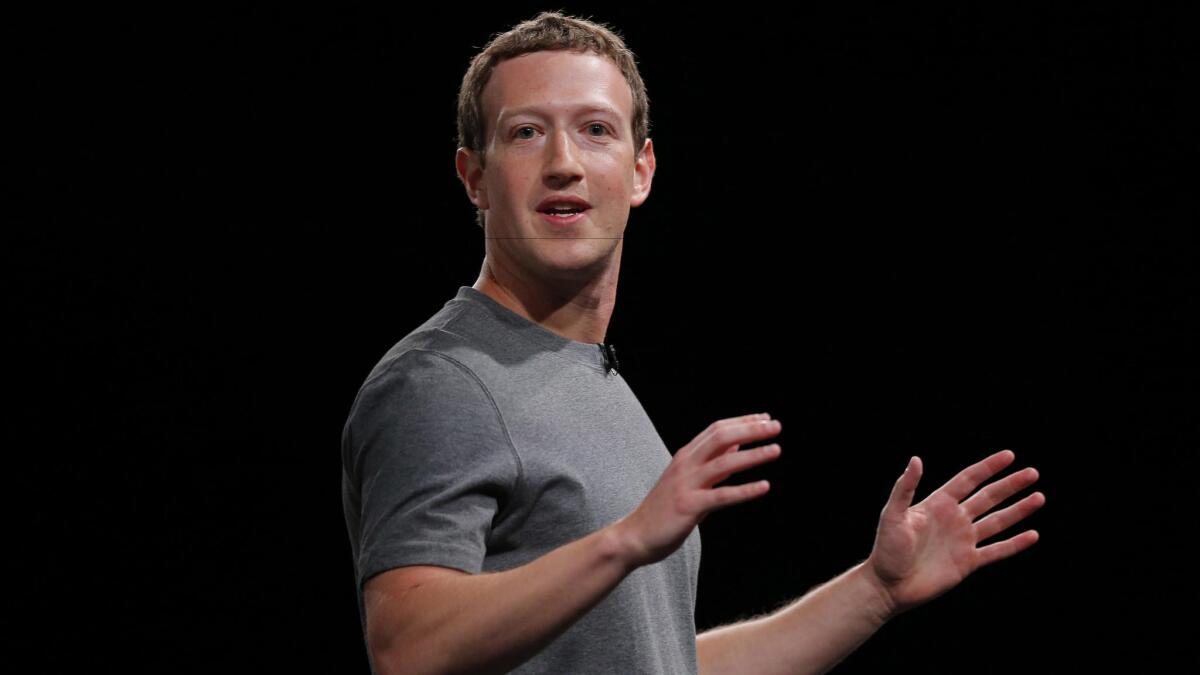What we know:
- Elon Musk’s SpaceX was fueling its unmanned rocket when the blast occurred Thursday morning.
- The company was preparing for a test firing, considered routine, in advance of a planned Saturday launch from Cape Canaveral Air Force Station.
- The explosion destroyed the rocket and its payload: an Israeli satellite meant to be used in Facebook’s effort to provide Internet service to poorly connected areas.
Read more: SpaceX explosion frustrates both Elon Musk’s and Mark Zuckerberg’s plans
- Share via
Elon Musk says fireball on launchpad was ‘not an explosion’
Musk also says SpaceX’s Dragon capsule would have withstood the flames that destroyed the Amos 6 satellite.
Video of this morning’s event can be seen below. The “fast fire” begins at the 1:12 mark.
- Share via
‘Too early to know’ if SpaceX missions for NASA will be affected
NASA had some supportive words for SpaceX, which the agency pays to make deliveries to the International Space Station. The company also has contracts with NASA to ferry astronauts to the space station in the future.
A nearby launch planned for next week, using a rocket from a different NASA contractor, appears to be unaffected by the explosion.
- Share via
Elon Musk’s bad day: Rocket explosion, stocks drop, Autopilot announcement postponed

Thursday’s explosion of the SpaceX Falcon 9 rocket isn’t the only problem Chief Executive Elon Musk is juggling.
He was set to announce Tesla Autopilot improvements in the wake of a fatal crash in Florida in May when the system’s sensors couldn’t distinguish the side of a big-rig truck from an overcast sky. Musk said those details would be delayed until the end of the weekend.
Beyond crashes and explosions, Musk is also trying to head off cash-flow problems. He’s trying to finance a $2.4-billion deal for Tesla to acquire SolarCity, where he serves as chairman.
The bad news sent Tesla’s shares tumbling $11.24, or 5.3%, to $200.11. Shares of SolarCity fell even further, closing down $1.88, or 9.1%, to $18.78.
- Share via
Why it’s good for SpaceX that the explosion happened on the ground
The explosion that destroyed a Falcon 9 rocket and the satellite it was supposed to carry could have been more damaging to SpaceX had it taken place after launch, analysts said. Here’s why.
Determining the cause of an in-flight explosion probably would take a lengthy investigation, industry analysts said. And when customers are waiting to send their satellites into orbit, time is money.
With a failure on the launchpad, the problem has a narrower scope, which cuts down on the time needed to find the issue. And because SpaceX already offers cheaper prices than the competition — the starting price for its Falcon 9 rocket is $62 million — it’s unlikely that companies will flock to other launch providers, said Marco Caceres, senior space analyst for the Teal Group.
- Share via
Facebook’s Internet plan will probably be slowed by SpaceX explosion

What effect will the SpaceX explosion have on on Facebook’s Internet.org initiative, which is supposed to bring low-cost Internet access to poorly connected areas?
It’ll probably slow those plans at least a little, since the Amos 6 satellite that SpaceX’s rocket was supposed to carry into orbit was meant to play a role in the project. Facebook and French satellite provider Eutelsat were paying a reported $95 million a year to lease bandwidth on the satellite for five years.
Tim Bajarin, tech-industry analyst with Creative Strategies, said Zuckerberg and Facebook can be expected to work on getting another satellite up as soon as possible.
The explosion “won’t have any impact on his goal at all,” Bajarin said. “This is an important part of his vision for providing Internet access around the globe, and while this may set back the timing, it will not derail his plans or vision.”
Facebook is not relying only on satellites to accomplish its goal. It’s also been experimenting with other technology such as Aquila, an unmanned, solar-powered plane that will be used to beam the Internet into remote areas. Facebook completed its first successful Aquila flight in June.
Crum writes for the East Bay Times/McClatchy.
- Share via
Florida Sen. Bill Nelson: Spaceflight an ‘inherently risky business’
Sen. Bill Nelson, a former astronaut who represents Florida’s Space Coast, said the SpaceX accident “reminds us all that spaceflight is an inherently risky business.”
Nelson was a payload specialist on a Columbia space shuttle flight that ended 10 days before the Challenger disaster in 1986.
“As we continue to push the frontiers of space, there will be both triumphs and setbacks. But at the end of the day, I’m confident that our commercial space industry will be very successful,” Nelson said in a statement.
- Share via
Video: Ball of fire consumes SpaceX rocket on launchpad

A SpaceX rocket carrying a satellite for Facebook exploded on the launchpad in September.
- Share via
How will the SpaceX explosion affect the industry?
The investment [in private space efforts] will still happen. I don’t think the technology is in jeopardy. It’s just going to be a bump in the road.
— Michael Blades, senior industry analyst for aerospace and defense at Frost & Sullivan
- Share via
5 miles away, explosion ‘sounded like a huge thunder strike’
Evan Zimny, 23, who works in an office building about five miles from the launch pad where a SpaceX rocket blew up Thursday morning, said the blast caused the building to shake and ceiling tiles to fall.
He said he and his coworkers ran outside and saw a huge plume of smoke near the launch pad.
“We heard what sounded like a huge thunder strike,” Zimny said. “The building and window shook rapidly and loudly and [that] lasted a couple of seconds.”
- Share via
SpaceX track record ‘right in the ballpark’ with 93% success rate
How does SpaceX’s success rate stack up with its competitors?
Bill Ostrove, an aerospace and defense analyst at Forecast International, said SpaceX’s reliability with the Falcon 9 is 93%, which is “right in the ballpark” of the industry average of 95%.
One of its chief competitors, United Launch Alliance, which has the Atlas V and Delta IV rockets, has a perfect launch record. ULA is a joint venture of Boeing Co. and Lockheed Martin Corp.
American and European rockets are largely reliable. But over the last few years, Russian rockets have become less reliable, with industrial issues stemming from the construction side, he said.
- Share via
‘There’s always a chance of failure’ during rocket launches
Uzi Rubin, former chief of Israel’s missile defense program, said that rocket launches are never foolproof, but that it’s uncommon to have a mishap such as the SpaceX explosion during launch preparations.
“The Falcon 9 up till now was very reliable,” he said. “There’s always a chance of failure, but usually it happens after the launch. This time it happened on the launch pad.”
Rubin added that the blast, which destroyed an Israeli-made communications satellite, could have repercussions for that country’s commercial interests.
Last month, Spacecom, the company that would have operated the Amos 6 satellite SpaceX was preparing to launch, said it had reached a preliminary deal to be purchased by China’s Beijing Xinwei Technology Group for $285 million. It’s unclear whether the loss of the satellite will derail the deal.
- Share via
Mark Zuckerberg ‘deeply disappointed’ satellite destroyed
The Israeli satellite destroyed during a SpaceX explosion Thursday morning was part of a plan by Facebook Chief Executive Mark Zuckerberg to provide Internet service to poorly connected areas and expand the social network’s reach.
- Share via
Elon Musk says Falcon 9 explosion happened while fueling up
- Share via
‘Total loss’ during explosion is a blow to satellite operator Spacecom
Space-Communication Ltd., which was to operate the Amos 6 satellite destroyed in Thursday’s explosion, issued the following statement to the Tel Aviv stock exchange:
“To the best of the company’s knowledge, during a ground fueling of launch rocket of the Amos 6 satellite, the launch rocket exploded, which caused the total loss of the satellite. The loss of the satellite will have a substantial influence on the company. The company will continue to report on the significance of the loss.”
The company, known as Spacecom, has had contracts with the Israeli government to use the satellite, which was meant for broadcast and telecommunications, as well as a broadband Internet project with Facebook. The satellite was manufactured by government-owned Israel Aerospace Industries.
Spacecom’s stock fell nearly 9% in trading in Tel Aviv on Thursday.
- Share via
A view of the explosion from above
- Share via
SpaceX’s upcoming launches will be affected
It is clear there will be some sort of delay [in SpaceX’s upcoming launches]. They had nine launches lined up for the rest of the year, and that will affect the schedule.
— Phil Smith, senior space analyst at the Tauri Group
- Share via
This isn’t SpaceX’s first big rocket explosion

SpaceX also experienced a major explosion in June 2015, when an unmanned rocket carrying cargo for the International Space Station exploded in midair minutes after liftoff from Cape Canaveral Air Force Station in Florida.
After an investigation, SpaceX Chief Executive Elon Musk said that the company believed its rocket disintegrated after a small steel band purchased from a subcontractor snapped under pressure.
He said SpaceX employees may have become somewhat complacent about quality control because of the firm’s repeated successes in recent years. Falcon 9 rockets had flown successfully 18 previous times.
The Falcon 9 in last year’s accident was carrying cargo worth $110 million when it broke up high off Florida’s coast. The cargo included equipment, a space suit, experiments, food and other supplies.
— L.A. Times staff
- Share via
SpaceX launches have grown more frequent
SpaceX has launched eight missions this year. The one planned for Saturday would have been its ninth. That’s up dramatically from six in 2015.
Last year’s low launch count is because of a 2015 rocket failure, which delayed the Hawthorne company’s launch schedule.
In June 2015, a Falcon 9 rocket disintegrated minutes after liftoff while carrying supplies bound for the International Space Station.
SpaceX founder Elon Musk later blamed that failure on a faulty strut that was holding down one of many helium bottles on the rocket’s second stage, where the explosion occurred.
- Share via
Israeli satellite was meant to further Facebook’s Internet plan

The Israeli commercial communications satellite that was set to launch Saturday at midnight aboard SpaceX’s Falcon 9 rocket was lost in Thursday morning’s explosion.
The Amos-6 satellite was intended to provide services, including broadband Internet and video distribution to the Middle East, parts of Europe and sub-Saharan Africa. According to the Orlando Sentinel, it was the next step toward Facebook Chief Executive Mark Zuckerberg’s effort to provide Internet service to poorly connected areas.
Satellite operator Space-Communication Ltd., based in Israel, operates the Amos satellite fleet.
- Share via
SpaceX explosion did not involve a reused Falcon 9 rocket
SpaceX designed the Falcon 9 rocket booster to be reusable and announced this week that it had signed its first customer to launch a satellite with a reused booster, but Thursday’s explosion involved a Falcon 9 that had never been used before.
SpaceX President Gwynne Shotwell has estimated that reusing rockets could eventually cut launch costs 30%, but the Hawthorne company must prove that it can safely and reliably reuse rockets to fulfill its core mission to increase the frequency and lower the cost of launches.
In June 2015, a SpaceX rocket carrying cargo to the International Space Station disintegrated over the Florida coast two minutes after liftoff. It too was a new rocket.
- Share via
The explosion was heard for miles around
David Turner, who lives in Edgewater, Fla., about 40 miles from Cape Canaveral, said he heard a “big boom.”
“It sounds as if a rocket had just gone up,” Turner said. “I walked outside, thinking it was going off tomorrow. I came back in and onto my computer and found out what happened.”
- Share via
Rocket and payload are destroyed, no injuries in explosion, SpaceX says
- Share via
No threat to general public, Brevard County says of rocket explosion
- Share via
Explosion comes ahead of planned Saturday launch
An explosion has rocked the SpaceX launch site in Florida.
Buildings several miles away shook from the blast, and multiple explosions continued for several minutes. A cloud of dark smoke filled the overcast sky.
The rocket was supposed to put an Israeli satellite into orbit this weekend.
-- Associated Press